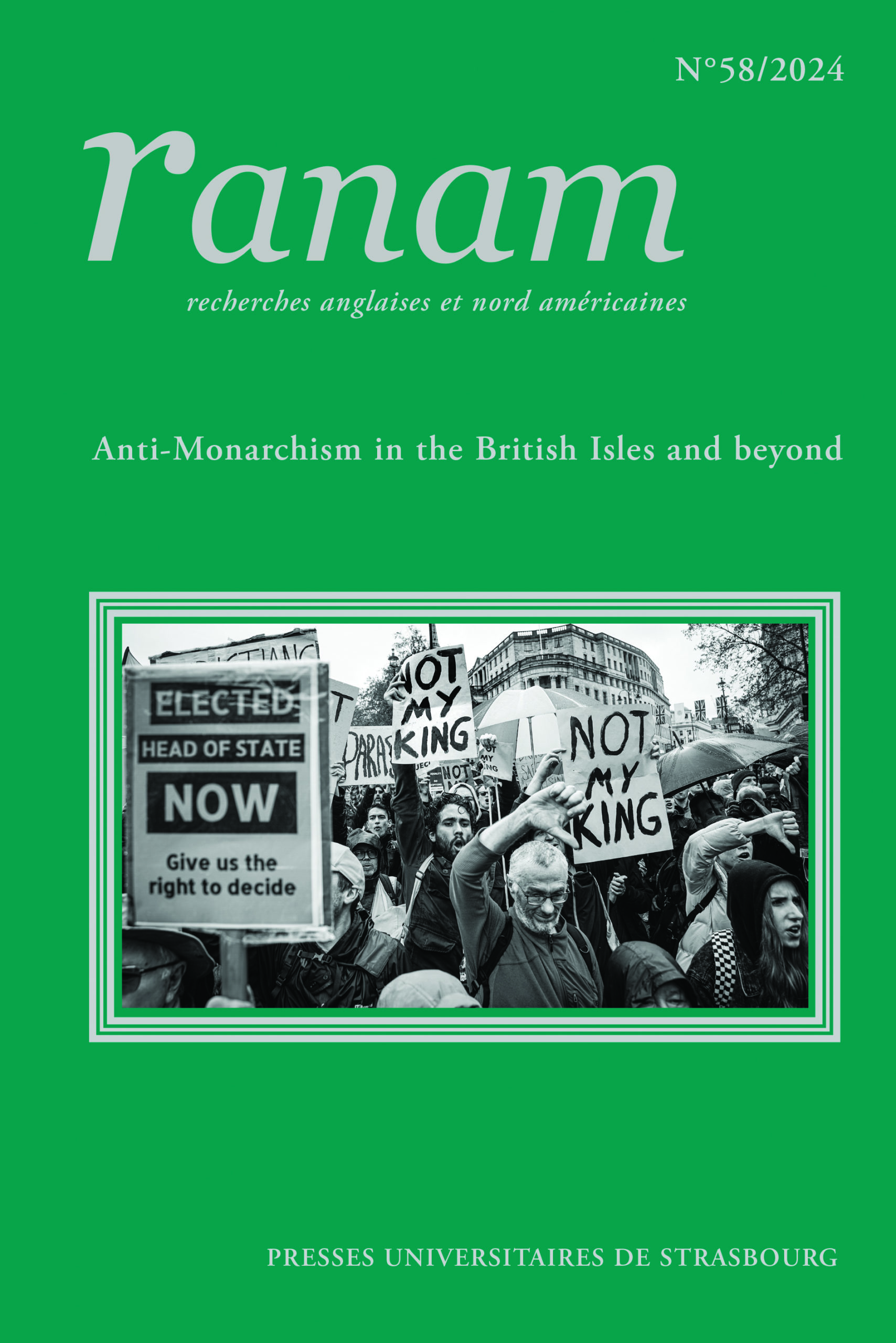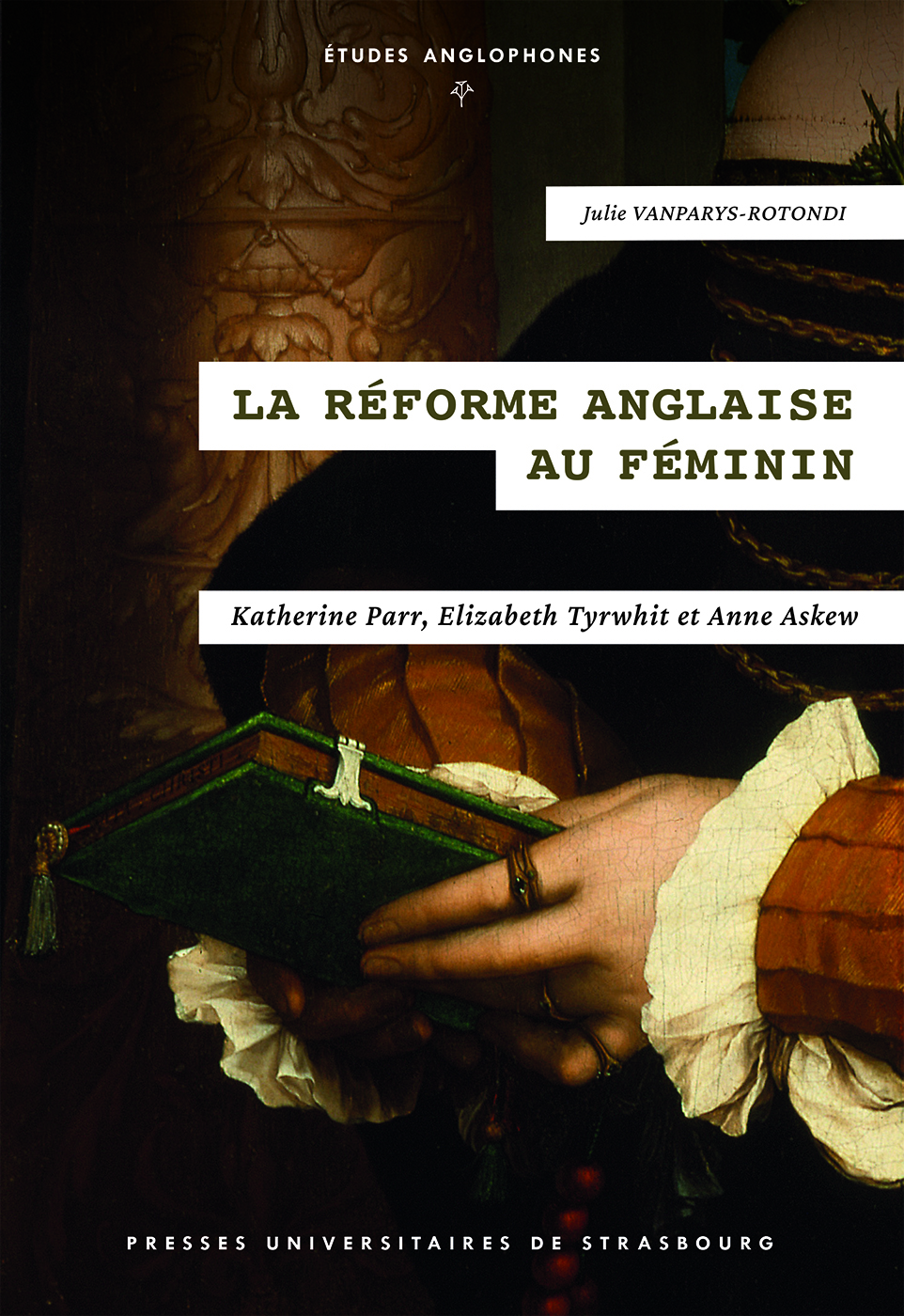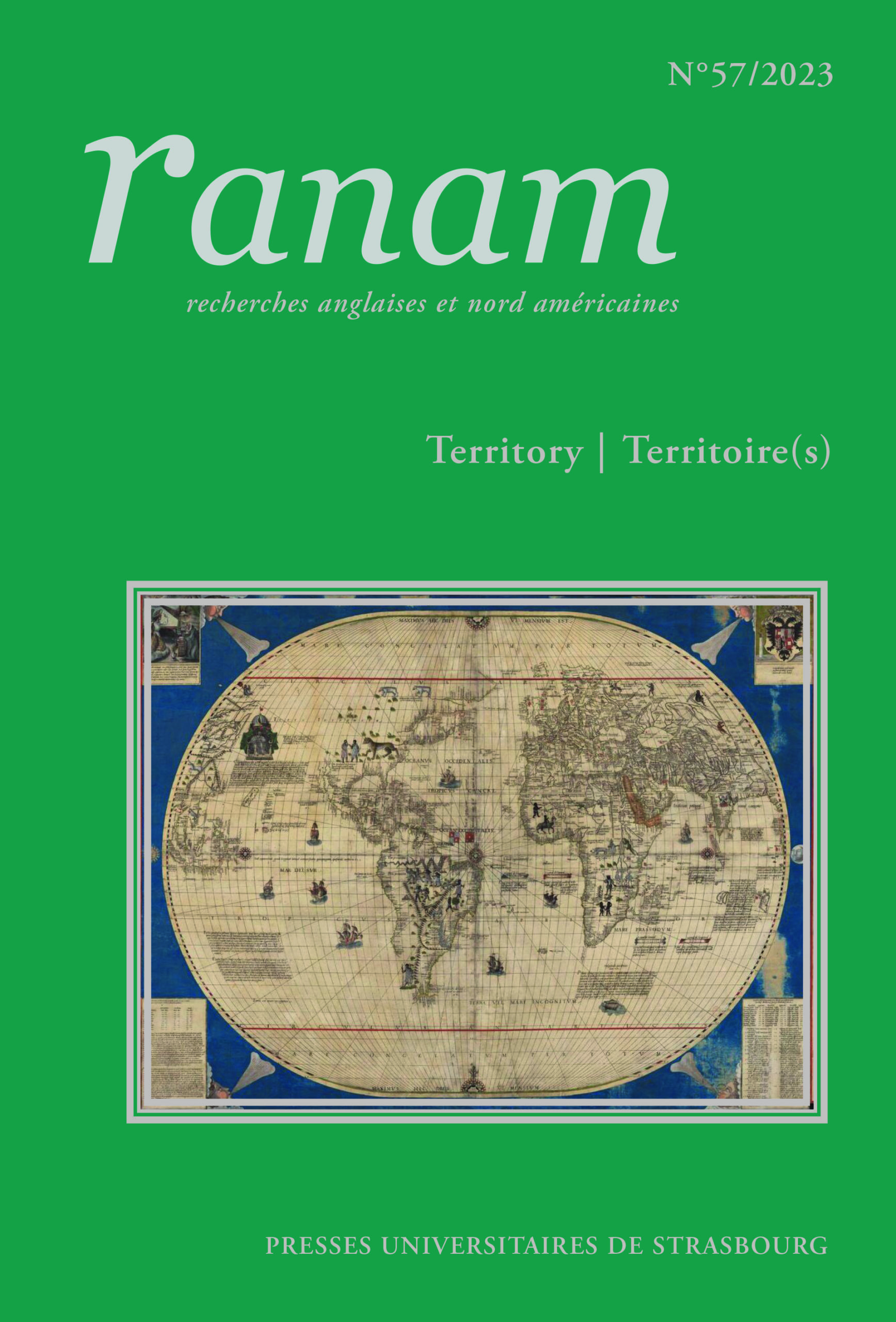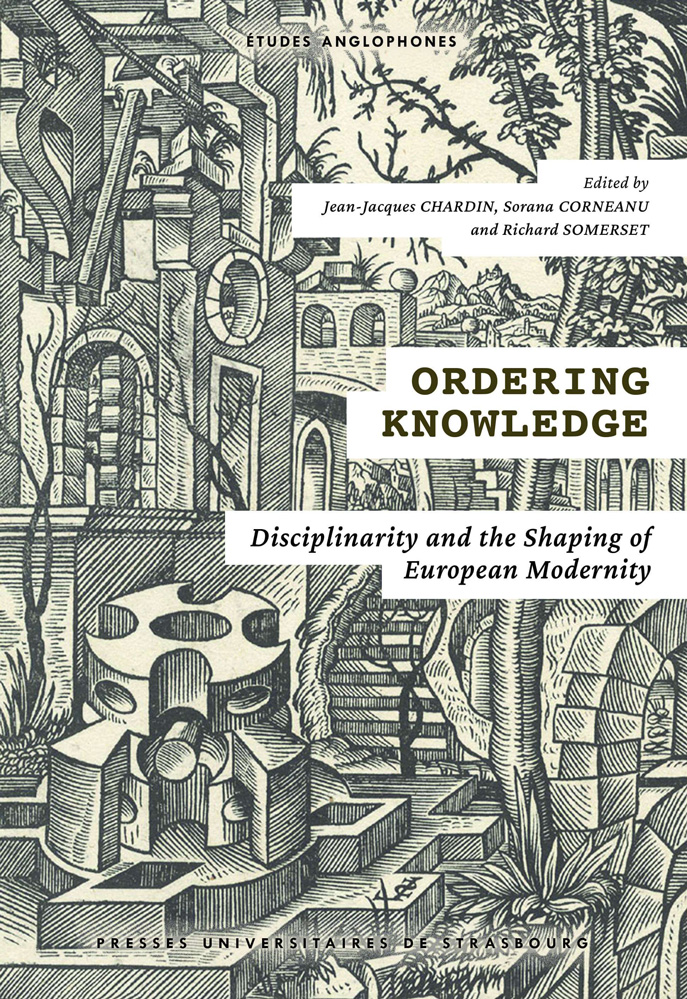- les PUS
- thématiques
-
- collections
-
- revues
-
- auteurs
- catalogue
- newsletter
Menu
This collective volume brings together thirteen contributions focusing on the transgression of borders in the English-speaking world from the beginning of the 19th century to the 21st century, in literature, history, geography, cultural studies, visual arts and political discourse. Far from being static and immutable, borders are shown to be permeable and performative, fluid sites of division and contact, processes rather than straight and rigid lines. The chapters explore the ways in which borders contribute to the shaping of identities and are negotiated in complex and subversive ways at cultural, territorial, individual and national levels. Borders are treated from an interdisciplinary perspective that articulates the literal and the metaphorical, the concrete territory and the imagined community, highlighting the imbrication of political, social, environmental, discursive and aesthetic considerations.
Introduction
Sandrine BAUDRY, Hélène IBATA and Monica MANOLESCU
I. Imposed Borders and Contested Geographies
Caroline LEHNI – Contested Borders: Northern Irish Murals and the Visualisation of Territory
Sandrine BAUDRY and Céline PLANCHOU – A History of Shifting Settler-colonial Borders: Reading the Native/Non-Native Territorial Palimpsest in and around Rapid City, SD
Anna-Grace SCULLION – The Decolonial Frontier: Landscape, Maps and Borders in Louise Erdrich’s Tracks
Joseph EGWURUBE – “Indigeneity”, “Statism” and “Federal Character”: The Manufacture of Inter-communal Borders in the Federal Republic of Nigeria
II. Natural and Symbolic Boundaries
Julien NÈGRE – Writing Without Borders? Thoreau’s Remapping of Borders Through Language
Frédérique SPILL – “One man’s tenuous hold on the earth”: The Metaphor of Barbed Wire in Ron Rash’s Writing
Stefanie LETHBRIDGE – The Past in the Present: The Black Forest in Victorian Periodicals
III. Borders and the Shaping of Transnational Identities
Silvia GERLSBECK – “dark strangers crossing the nation’s threshold”: Confinement and Border Crossings in the Fiction of George Lamming and Sam Selvon
David BOUSQUET – “Whey Mi Belang”: Borders of Class, Race and Gender in Reggae Lyrics and Afro-Caribbean Oral Texts
Sara ARAMI – Undermining Borders in The Girl in the Tangerine Scarf
IV. Navigating Liminal Spaces
Laurence CRISTINA – From the “Angel in the House” to the Suffragette: How the New Woman Crossed the Border Between the Private and the Public Spheres, Great Britain, 1854-1918
Amandine GUYOT – Crossing Lines in Imperial India: a Geocritical Study of Subversive Transgressions in R. Kipling’s Kim and E.M. Forster’s A Passage to India
Julia SICCARDI – “You people aren’t even black anymore”: Tentative Reconfigurations of Geographical, Social and Racial Borders in Zadie Smith’s On Beauty
Contributors’ Biographies
Credits
23,00 € TTC




Presses Universitaires de Strasbourg
Université de Strasbourg
4, rue Blaise Pascal – CS 90032
67081 Strasbourg cedex
tél. +33 (0)3 68 85 62 65
2024 – tous droits réservés